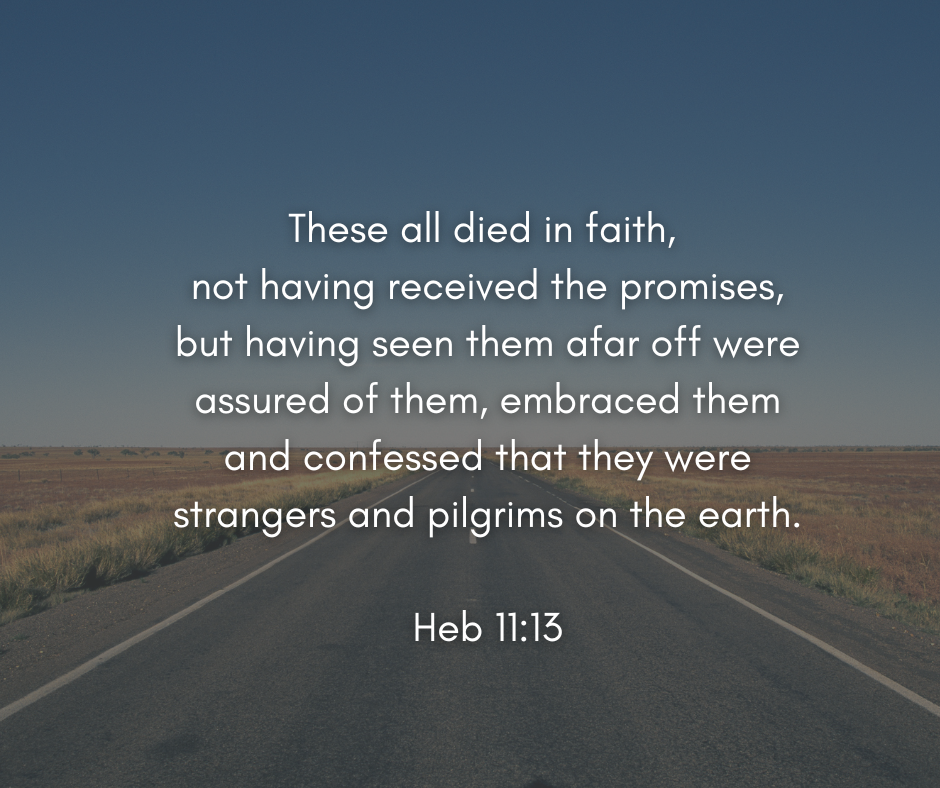Hebrews Chapter 11 – Genealogy of the Faithful

Genealogy is a collection of personal stories linked through blood relations. We recount genealogy for different reasons. A historian is interested in genealogy because family history epitomizes the larger national and regional history. It shows the workings of a larger social and cultural process. A medical scientist is interested in genealogy to track a pattern of hereditary diseases for better preventive care. A family often recounts their genealogy to consolidate self-identity and a sense of belonging. Hebrew 11 is also a genealogy consisting of personal stories linked not only through blood relations but also through faith.
What is faith?
Faith means being absolutely sure that you have already gotten something that you hope for, even though you haven’t seen it yet (Heb 11: 1).
How does faith work?
Faith is intangible but palpable. Because of faith, individuals often exhibit behaviors that are contradictory to social norms and human rationale.
By faith, Noah spent a century handmade a massive 134 x 22 x 13 m (440 x 72 x43 ft) wooden floating structure to house people and animals against a never-seen-before natural phenomenon–the Great Deluge (Heb 11:7; Gen 6 and 7).
By faith, without a google map or GPS, Abraham migrated to don’t-know-where. Not to settle down, but wander for the rest of his life (Heb 11: 8).
By faith, without assisted reproductive technology (ART), Sarah conceived and bore a healthy baby at the advanced age of 91 (Heb 11: 11: Gen 18:1-15; Gen 21: 1-8).
By faith, Abraham believed that even if his only son were offered up as a sacrifice, the child would still resurrect (Heb 11:17; Gen 22:1-14). He would still have him back from the alter alive to bring back home.
By faith, Isaac, Jacob, and Joseph blessed their children, knowing that their blessing is already a fact (Heb 11: 20-22; Gen 27; Gen 4727-31; Gen 48 and 49). The future is already the present.
By faith, Moses’ parents defied the possibility of death sentences and kept the child (Heb 11: 23; Exodus 2: 1-10). They later placed the child in a basket and set it afloat in the Nile. Did they not know the probability of the basket bumping into a crocodile was far greater than being picked up by a princess? The Nile crocodiles are known to swim the entire ancient Egyptian Nile River and could grow to 5-6 meters in length.
By faith, Moses quit a tenured high ranking government position, with a comprehensive healthcare coverage and full family benefit. In return, he opted for a thankless, high-stress job. He often worked overtime, was embroiled in office politics, and constantly impeached by his people, including his own siblings (Heb 11:24; Exodus 5:22; Num 11, 12, 14).
By faith, Moses kept the Passover and sprinkled blood when there was zero scientific evidence to tell him that such acts could effectively ward off evil and preserve life (Heb 11:28; Exodus 12:21-28)
By faith, the Israelites trod the dry path in the ocean (Heb 11:29; Exodus 14). They believed God would hold up the water walls on both sides until they reached the other shore. The Egyptians also trod on the same path, but without faith the water walls collapsed and the ocean engulfed them.
By faith, against the rationale of any known military strategy and laws of physics, the Israelites did six days of daily walking routines and blew horns on the seventh day. Without an inch of iron they brought down the city of Jericho (Heb 11:30; Joshua 6).
By faith, Rehab asked that her parents, sibling, and everyone and everything that belonged to them to be saved (Heb 11:31; Joshua 2). How was she so sure that she could hinge her hope for salvation on a small piece of red rope that hung outside her house? Imagine on the day of Israel’s attack, her house must have been sardine-packed with families, extended families, cousins, friends, servants, close neighbor, pets, domestic animals, and things. In silence, they must have listened to the collapse of the city wall, and trembled at the thought and sight of mayhem outside their window.
By faith, numerous ordinary individuals were transformed into extraordinary fighters against beasts, fires, and swords (Heb 11:32-34; Judges). How did they have the gut to quit their regular jobs and tell their families they are leading a revolution that is success-bound?
By faith, followers of Christ suffered flagging, torture, imprisonment, slow death by stoning, and dismemberment. Like dust they became homeless fugitives (Heb 11:35-40). Human beings only live once, why are they so insistent?
By world’s standards, we have just studied a genealogy of people who are out of their minds. By faith, we have just witnessed a longitudinal documentation of God’s everlasting grace and power through the genealogy of the faithful. By faith, those in the genealogy stood against prevailing social values. They treasured the invisible more than the visible. They opted for hardship instead of comfort zones. They believed God does great things and they themselves could be great because of and for God. They have seen time beyond time, existence beyond death, and the extraordinariness of God in the ordinariness of their lives.
By faith, are we able to say…
Yes, I can, I do, and it is already as promised.